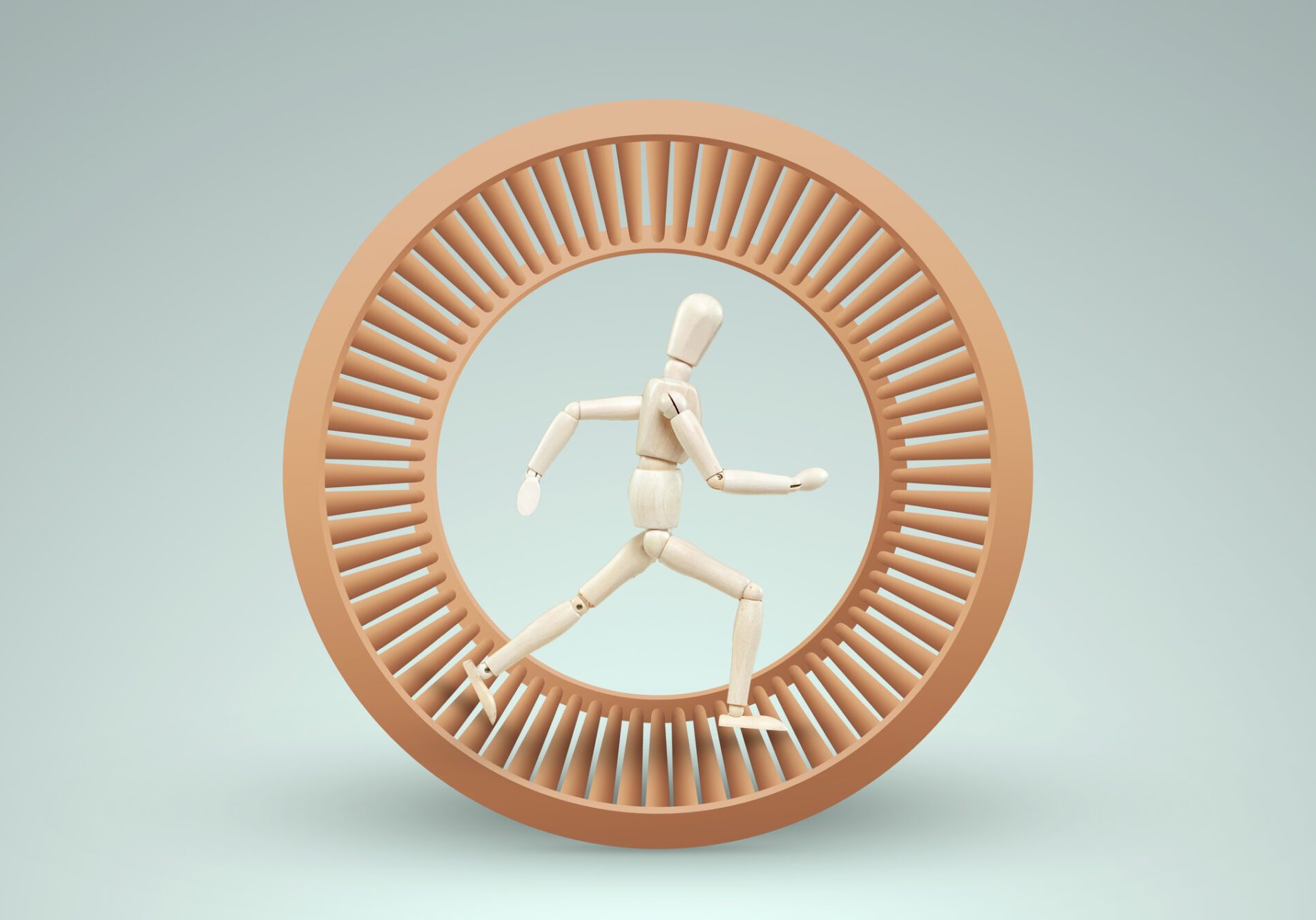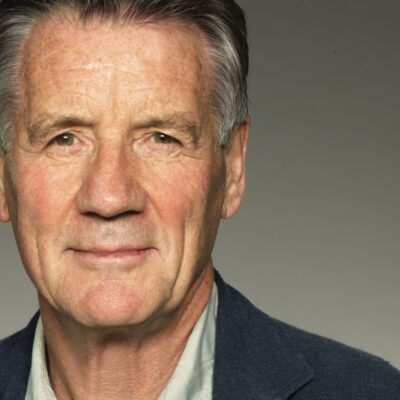
Stepping off the Hamster Wheel
by Melva Burton
STEP OFF THAT HAMSTER WHEEL FOR A MOMENT OR TWO.
I can’t believe that it’s nearly three years since I started writing the Mindfulness and More column. As I sat down to begin this one, I realised that I was struggling to choose what to focus on this time round. So, I decided to settle down for a few minutes of mindfulness practice to quieten my busy mind. My eyes were drawn to a bookcase rammed with mindfulness books.
Back in 2016 I started studying for an MSc in mindfulness with Aberdeen University. A great adventure. Preferring ‘real’ texts, rather than the e-book versions, I amassed a sizeable library of interesting reads. As I scanned the shelves a book with a purple cover (my favourite colour) appeared to be calling for my attention. It was a book by Vidyamala Burch. Vidyamala is the co-founder of Breathworks, which was set up in 2004 and is a charity focusing on mindfulness for pain, illness, stress and wellbeing. What is more, it’s not based over in the States, the centre of London or up in the wilds of Scotland but in the middle of Manchester. A bit of Northern Soul? The Mindfulness-Based Pain Management Programme, developed by Vidyamala following a series of spinal conditions which left her needing to use a wheelchair, has been shown to improve self-management of pain and improve the quality of life.
Vidyamala describes mindfulness as “living in the moment, noticing what is happening and making choices in how you respond to your experience, rather than being driven by habitual reactions.”
Similarly, Thich Nhat Hanh says that it is “the act of bringing one’s full attention to what is happening in the present moment”. For Ed Halliwell it is an ABC skill: the more that we are aware (A), and can skilfully be (B), the more our range of choice(C). I could go on… there are many definitions in the volumes in my book case.
WE CAN’T STOP THE WAVES BUT WE CAN LEARN TO SURF
For most of us there are times when life can feel like a turbulent ocean. As Jon Kabat-Zinn points out: we can’t stop the waves but we can learn to surf. Alongside that, Vidyamala tells
us that it is possible for us to rest in the calm depths of the ocean rather than being tossed around by the waves and the surface chaos of our lives. Mindfulness practice can benefit us all, regardless of whether we are a child, a teen or an adult. There are so many distractions for us human beings (or, maybe more accurately, us human doings) in our fast-paced digital age.
Vidyamala reminds us that “mindfulness is only one breath away” and she suggests that we give ourselves a gift of the present moment. A delightful gift indeed.
Although I don’t run sessions in educational settings, I am impressed with Mindfulness in Schools Project, a national charity providing training for teachers, that has been around for over ten years. Their research suggests that mindfulness training across the school age groups can reduce stress, anxiety, reactivity and bad behaviour.

Alongside this it has been shown to bring about greater calmness, relaxation, and an enhanced ability to manage behaviour and emotions as well as increased self-awareness and empathy. There is a light touch practice of theirs that I do use. It’s called FOFBOC –an easy acronym to remember -as a little grounding practice. It stands for Feet On Floor Bum On Chair. I can imagine shouting this to a class of rowdy kids to get their attention so that they pause, come back into the present moment and calm down a bit. Another practice from their programme is getting the kids to text ‘b’ to one another during the day. The dot means ‘stop’, and the ‘b’ stands for ‘breathe’ and ‘be’. Fun and grounding at the same time. A theme that appears frequently in mindfulness teachings focuses on our tendency to live lifeon automatic pilot and the impact that this can have on our lives. Autopilot has its benefits for dealing with mundane activities and everyday routines. When the brain is in autopilot mode stuff gets done quickly, accurately and without conscious thought. But do we really want to live our whole lives on autopilot? I certainly don’t.
Mindfulness practice gives us an alternative to automatic pilot by encouraging us to step out of doing mode. We can let go of the past and future, slow down and pause.
If we set an intention to weave little bits of mindfulness practice into our daily lives, then there are lots of ways we can step off that hamster wheel for a moment or two.
Back in 2005 Jon Kabat-Zinn wrote ‘Coming to Our Senses’, outlining how the power of mindfulness can be harnessed to effect change in our personal lives and in the world. When we are feeling overwhelmed or worried, if we come to our senses then we bring ourselves into the present moment. We can quieten that busy mind simply by focusing on what we see, hear, touch, smell or taste.
In doing this we are able to take in the good stuff around us too. Practising this up on the allotment I see how the vegetables are coming on, I hear a blackbird’s song, I touch a blade of grass, smell the sweet peas and –if I’m very lucky –taste a strawberry or two.
So, if we set an intention to weave little bits of mindfulness practice into our daily lives, then there are lots of ways we can step off that hamster wheel for a moment or two. In pausing and coming to our senses we are able to shift out of doing mode. As we move into being mode, we are more likely to notice some of the good stuff that’s around us.
Craven&ValleyLife Autumn 22





